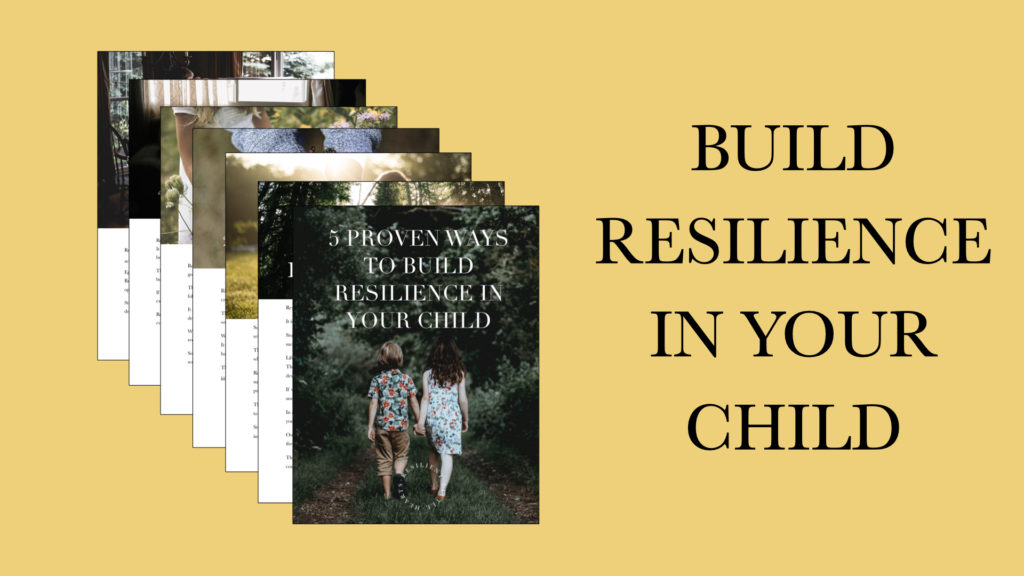Increasing your Child’s Self-Confidence
It can be quite confronting as a parent when you notice your child lacks confidence in themselves.
Maybe you notice it through their negative self-talk, or their withdrawal from certain social situations, or their lack of wanting to try new things…
Our heart for our children is that they would feel confident within themselves & interact with the world from that foundation.
There are a few reasons your child may be lacking self-confidence:
- they have the trait of high sensitivity (& are often very cautious or reserved in new situations)
- they can be a perfectionist (and are extremely critical of themselves)
- they have been in situations where they have been harshly criticized
- they have not been given developmentally appropriate opportunities to learn new skills & explore, so they have stopped trying
No matter the reason behind it, it’s not too late to support them to grow in their self-confidence.
Here are some practical things you can do to increase your child’s self-confidence:
1. Teach them about self-talk
We all have self-talk that automatically happens within our own brain. When we can become more conscious of what this voice is saying, we can then decide whether to believe it or not.
When teaching a child about self-talk it’s important to separate who they are as a person, & the thoughts they are having. We can do this through saying things like – “is your brain being mean to you again?”, or “do you think that thought your brain told you, is true?”
When we separate the concept of self, from the thoughts our brain has, it empowers us to decide whether to believe or accept the thoughts we have.
A practical way to explore this concept is by using some of the characters from Winnie The Pooh (if your child is familiar with the story).
This concept is that all of the characters from the story, live inside our brain, & different ones direct our thoughts at different times. Eeyore is very negative, Tigger is very positive, Piglet is sensitive & scared, Pooh is gentle & curious.
When you are discussing your child’s thoughts, you could say “is that Eeyore talking to you again?”, or you could brainstorm together, “what do you think Tigger would say? what about Pooh?”.
2. Give them opportunities for increased independence
As children grow older that are longing for independence. Even at times, it may feel that they have lost this desire, you can ignite it by empowering them with age-appropriate independence.
Some examples could be:
- giving them the job of collecting the mail from the letterbox at the end of the driveway
- having them do the checkout at the grocery store while you’re there
- teach them how to check out library books from your local library
- involve them in the preparation of cooking dinner
- teach them how to ride a bike
- have them teach a younger sibling a skill
The more competent a child feels in life skills, the more self-confidence they will develop. Confidence grows through competence.
3. Cultivate a growth mindset
Sometimes our child has lost their confidence, because someting they did, didn’t go “perfectly”. Maybe there’s a subject at school they aren’t great at, or a sports situation that didn’t go their way.
When they don’t have a good or positive outcome, children will often decide “I’m just not good at X”. This belief not only erodes their self-confidence, but stops them from trying to improve in the future.
This is what psychology calls a fixed mindset – when we believe that we are either good or bad, at a specific thing.
The opposite of this is a growth mindset – when we believe that no matter the area of life, we can grow & improve on it with work. A growth mindset empowers a child to continue trying in areas of previous failure.
You can cultivate a growth mindset in your child by reading books together about the topic, by sharing areas of your own life where you started out not good at something but grew over time, or pointing out examples from their own life where they have grown over time.
Building your child’s self-confidence is something that doesn’t happen once, but is rather a continual process. As you continue to cultivate their beliefs & empower them with opportunities for independence, your child will grow stronger in their own self-confidence.











